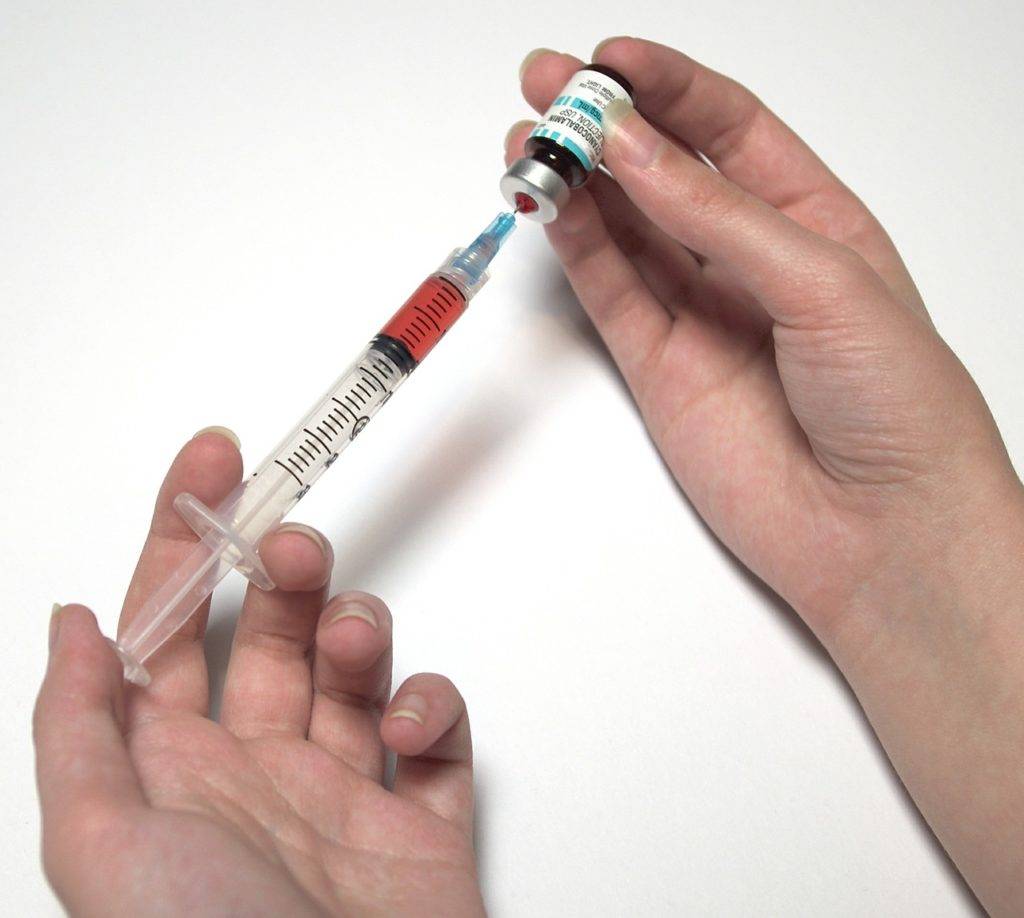Vaccines play a vital role in keeping our children healthy. Among the vaccines available, the MMR vaccine stands out as particularly crucial. This vaccine protects against three serious diseases: measles, mumps, and rubella. These diseases can lead to severe health complications, but the MMR vaccine provides effective protection.
What is the MMR Vaccine?
The MMR vaccine is a combined immunization shot that protects against measles, mumps, and rubella. Developed in the late 1960s, this vaccine has a long history of success in preventing these diseases. The vaccine is typically administered in two doses: the first is given at 12-15 months of age, and the second is given at 4-6 years old.
How Does the MMR Vaccine Work?
The MMR vaccine works by introducing a small, harmless amount of the viruses that cause measles, mumps, and rubella into the body. This stimulates the immune system to produce antibodies against these viruses. If the vaccinated person is later exposed to the viruses, their immune system will recognize and fight them off more effectively.
Why is the MMR Vaccine Important?
Protecting Against Measles
Measles is a highly contagious virus that can lead to severe complications such as pneumonia, encephalitis (brain swelling), and even death. Before the vaccine was introduced, measles caused millions of infections and thousands of deaths each year. The MMR vaccine has significantly reduced the incidence of measles worldwide.
The Dangers of Measles
Measles isn’t just a simple rash and fever. It causes severe complications, particularly in young children and people with weakened immune systems. These complications include:
- Pneumonia: A lung infection that can be severe and life-threatening. This is the most common cause of death from measles in young children.
- Encephalitis: A brain inflammation that can lead to permanent brain damage or death.
- Subacute sclerosing panencephalitis (SSPE): A rare but fatal disease of the central nervous system that can occur years after a person has recovered from measles infection.
Before widespread vaccination, measles was a leading cause of childhood mortality. Thanks to the MMR vaccine, measles has dramatically decreased, but the disease remains a threat, especially in areas with low vaccination rates.
Guarding Against Mumps
Mumps is another highly contagious disease that can cause painful swelling of the salivary glands, fever, headache, and muscle aches. In some cases, mumps can lead to complications such as meningitis, encephalitis, and hearing loss. The MMR vaccine has greatly reduced the number of mumps cases and their associated complications.
Complications of Mumps
While many people recover from mumps without serious issues, complications can occur, particularly in adults. These can include:
- Orchitis: Inflammation of the testicles in males, which can lead to infertility.
- Oophoritis and mastitis: Inflammation of the ovaries and breasts in females.
- Pancreatitis: Inflammation of the pancreas, which can be very painful and requires hospitalization.
- Deafness: Mumps can cause hearing loss, usually in one ear.
The MMR vaccine is highly effective at preventing mumps and its complications, making it an essential part of childhood immunization programs.
Preventing Rubella
Rubella, or German measles, is generally a mild illness in children but has serious consequences if a pregnant woman becomes infected. Rubella causes miscarriage, stillbirth, or severe birth defects in the unborn child. The MMR vaccine protects against rubella, thereby safeguarding unborn children from these devastating effects.
The Threat of Congenital Rubella Syndrome (CRS)
When a pregnant woman contracts rubella, the virus passes to the developing fetus, leading to congenital rubella syndrome (CRS).
CRS causes severe birth defects, including deafness, heart defects, intellectual disabilities, cataracts, and liver and spleen damage. Preventing rubella through vaccination is the best way to protect unborn babies from these severe outcomes.
The Safety of the MMR Vaccine
Common Misconceptions
Despite its proven effectiveness, the MMR vaccine has been the subject of misinformation and controversy. One of the persistent myths is that the vaccine is linked to autism.
This claim has been debunked by numerous scientific studies and health organizations, including the Centers for Disease Control and Prevention (CDC) and the World Health Organization (WHO).
The Autism Myth
The myth linking the MMR vaccine to autism originated from a 1998 study by Dr, Andrew Wakefield. This study has since been discredited due to serious procedural errors, ethical violations, and financial conflicts of interest.
Extensive research involving millions of children has found no link between the MMR vaccine and autism. The original study was retracted, and Dr. Wakefield lost his medical license. Rely on credible sources and scientific evidence when deciding on vaccinations.
Side Effects of the MMR Vaccine
Similar to other vaccines, the MMR vaccine causes side effects but is generally mild and temporary. Common side effects include fever, mild rash, and swelling at the injection site. Serious side effects are rare. The benefits far outweigh the risks, making it a safe and effective choice for protecting your child’s health.
Managing Side Effects
Most side effects of the MMR vaccine are mild and resolve on their own. A fever may occur 7-12 days after vaccination, and some children develop a mild rash.
These side effects are usually short-lived and can be managed with over-the-counter medications like acetaminophen or ibuprofen. If you have any concerns about side effects, it’s best to consult your pediatrician.
Addressing Concerns
Parents naturally want to ensure their children receive the best care possible. Addressing concerns about vaccine safety openly and with factual information helps alleviate fears. It’s important to understand that the risks of vaccine-preventable diseases far outweigh the minimal risks associated with vaccination.
The Role of Herd Immunity
What is Herd Immunity?
Herd immunity occurs when a large portion of the community becomes immune to a disease, making its spread unlikely.
This protection extends to those who cannot be vaccinated, such as infants, pregnant women, and individuals with certain medical conditions. By vaccinating your child, you contribute to the overall health and safety of your community.
The Science Behind Herd Immunity
Herd immunity works by interrupting the transmission of infectious diseases. When a high percentage of the population is immune, either through vaccination or previous infection, the disease has fewer opportunities to spread.
This means that even those who aren’t immune are less likely to come into contact with the disease, thus providing them with indirect protection.
The Impact of Herd Immunity on Public Health
Herd immunity is essential for preventing outbreaks and protecting vulnerable populations. High vaccination rates are necessary to maintain herd immunity and prevent the resurgence of diseases that were once under control. When vaccination rates drop, outbreaks can occur, putting everyone at risk.
Recent Outbreaks
In recent years, there have been outbreaks of measles in various parts of the world, often linked to declines in vaccination coverage. These outbreaks serve as a reminder of the importance of maintaining high vaccination rates to protect public health.
Real-World Examples
Countries with high vaccination rates have successfully controlled and even eliminated diseases like measles, mumps, and rubella.
For instance, the United States has declared measles eliminated in 2000 due to high vaccination coverage. However, recent declines in vaccination rates have led to outbreaks, demonstrating the importance of maintaining herd immunity.
How to Ensure Your Child is Protected
Following the Vaccination Schedule
To ensure your child is fully protected, follow the recommended vaccination schedule. The first dose of the MMR vaccine should be given at 12-15 months of age, with the second dose at 4-6 years of age. Some children need additional doses if they travel to areas with high rates of measles or if there’s an outbreak.
Importance of Timely Vaccination
Timely vaccination is crucial for providing immunity at the earliest possible age. Delaying or skipping vaccinations leaves children vulnerable to serious diseases during critical periods of their development.
The recommended vaccination schedule is designed to provide protection when children are most at risk. Adhering to this schedule ensures that children receive timely protection and the maximum benefit from vaccines.
Talking to Your Pediatrician
If you have any concerns or questions about the MMR vaccine, don’t hesitate to talk to your pediatrician. They provide accurate information to help you make informed decisions about your child’s health.
Building Trust with Healthcare Providers
Establishing a trusting and strong relationship with your child’s healthcare provider, such as your pediatrician, makes a difference in managing health decisions. It helps alleviate any fears or concerns about vaccinations. Open and honest communication is key.
Willingness to discuss concerns results in better health outcomes for your child. Your pediatrician can address your questions and provide evidence-based recommendations tailored to your child’s needs.
Addressing Vaccine Hesitancy
Understanding Vaccine Hesitancy
Vaccine hesitancy refers to delay in acceptance or refusal of vaccines despite availability. It’s influenced by misinformation, fear of side effects, and lack of trust in healthcare providers. Misinformation stems from various sources such as social media, cultural beliefs, and personal experiences.
Addressing these concerns with factual information is key to increasing vaccination rates. Understanding the reasons behind hesitancy helps healthcare providers develop effective strategies to address and promote vaccination.
Strategies for Overcoming Hesitancy
- Education: Providing accurate and comprehensive information about the benefits and safety of vaccines.
- Engagement: Involving community leaders and influencers to promote vaccination.
- Accessibility: Ensuring vaccines are readily available and convenient to receive.
Providing Reliable Information: Accurate information about the benefits and safety of the MMR vaccine is essential in overcoming vaccine hesitancy. Healthcare providers, schools, and public health organizations play a crucial role in educating parents and caregivers about the importance of vaccinations.
Trusted Sources: It’s important to rely on information from reputable sources such as the CDC, WHO, and medical professionals. These organizations base their recommendations on rigorous scientific research and provide evidence-based guidance.
Personal Stories: The Impact of the MMR Vaccine
Real-Life Examples
Hearing real-life stories from parents and individuals who have experienced the benefits of the MMR vaccine can be powerful. These stories highlight the importance of vaccination in preventing illness and protecting the community.
Testimonials: Parents who have seen the positive effects of vaccination on their children’s health can provide compelling testimonials. Their stories can reassure other parents and encourage them to follow vaccination recommendations.
Case Studies
Sharing case studies of measles, mumps, and rubella outbreaks and their impact on communities helps illustrate the critical need for the MMR vaccine. These examples show the consequences of low vaccination rates and the importance of maintaining high coverage.
Historical Perspectives: Relating to the history of these diseases before the MMR vaccine was introduced provides context for their severity. Historical data highlight the dramatic reduction in cases and complications due to widespread vaccination.
Resources and Support
Finding Credible Information
For accurate and updated information about the MMR vaccine, consult reputable sources such as the CDC, WHO, and your pediatrician. These organizations provide evidence-based information to help you make informed decisions about your child’s health.
Online Resources: Websites like the CDC and WHO offer extensive information, including fact sheets, FAQs, and guidance for parents. These resources help you understand the importance of vaccination and address any concerns.
Support Groups and Networks
Joining support groups or online communities provides valuable information and reassurance from other parents who have vaccinated their children. Sharing experiences and discussing concerns with others helps build confidence.
Peer Support: Connecting with other parents who had the vaccination process provides practical advice and emotional support. Peer support networks are a valuable resource for navigating health decisions.
Protect Your Child with MMR Vaccine
The MMR vaccine protects your child from measles, mumps, and rubella. By vaccinating your child, you safeguard their health and contribute to the health and safety of the community.
Accurate information, adherence to vaccination schedules, and open communication with healthcare providers are essential in ensuring your child is fully protected. For more information on vaccines and other health topics, visit Omegapediatrics.com.
Understanding the importance of the MMR vaccine and making informed decisions ensures a healthy future for your child and your community. Vaccines save lives, and your choice to vaccinate makes a significant difference.







